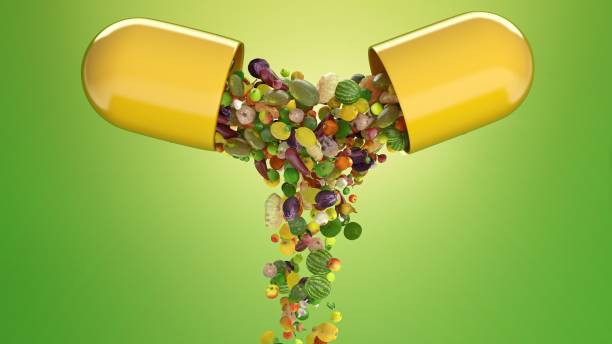Ultimate Guide to Vegan Creatine Monohydrate: Top Supplements Reviewed
The Complete Guide to Vegan Creatine Supplementation: Benefits, Sources, and Best Practices
Creatine supplements help athletes improve performance and muscle growth. While creatine naturally occurs in animal products, vegan athletes can still benefit from creatine supplementation.
This guide explains everything about vegan creatine sources, effectiveness, dosing, and product recommendations to optimize your plant-based fitness journey.

What is Creatine and Why Do Vegans Need to Supplement?
Creatine is an amino acid that supports energy production during high-intensity exercise and muscle contractions. The body synthesizes some creatine, but most people get it from animal products.
Vegan diets contain minimal creatine, making supplementation especially important for plant-based athletes. Creatine supplementation helps vegans maintain optimal creatine levels for athletic performance.
The human body uses creatine to produce ATP, the primary energy source for muscle contractions. Without adequate dietary creatine intake, vegan athletes may experience reduced strength, power output, and recovery capacity during intense exercise.

Are Vegan Creatine Supplements as Effective as Regular Ones?
Synthetic creatine monohydrate supplements are identical in structure and function regardless of source. Well-designed studies show vegan creatine supplements provide the same benefits as traditional versions.
The key factor is choosing a high-quality creatine monohydrate supplement with good absorption.
Research demonstrates that vegan athletes taking creatine monohydrate experience similar improvements in muscle strength, power output, and body composition compared to omnivorous athletes.
The supplement's effectiveness depends on proper dosing and consistency rather than source.

What Forms of Vegan Creatine Are Available?
Vegan creatine comes in several forms including powder, capsule, and tablet options.
Creatine monohydrate powder remains the most researched and cost-effective choice. Micronized creatine monohydrate offers improved mixability and absorption.
Most manufacturers offer unflavored versions that can be mixed into protein shakes or other beverages. Some brands provide flavored options like raspberry that are certified vegan and gluten-free.
The serving size typically ranges from 3-5g per serving with 20-60 servings per container.

How Much Creatine Should Vegan Athletes Take?
Standard creatine supplementation protocols recommend a loading phase of 20g daily for 5-7 days, followed by a maintenance dose of 3-5g daily.
Vegan athletes may benefit from slightly higher maintenance doses of 5g daily since their dietary intake is minimal.
Taking creatine post-workout with a vegan protein shake can enhance absorption and support muscle recovery.
Consistency matters more than timing - the key is reaching and maintaining optimal creatine saturation in muscles through regular supplementation.

What Are the Benefits of Creatine for Plant-Based Athletes?
Creatine supplementation provides numerous benefits for vegan athletes engaged in resistance training and high-intensity exercise.
It improves strength and power output during weightlifting and sprinting activities while supporting faster recovery between sets.
Research shows creatine can enhance muscle protein synthesis and muscle building when combined with proper training.
It may also offer cognitive benefits and support brain health through improved energy metabolism and neuroprotective effects.

Which Vegan-Friendly Creatine Brands Are Most Reliable?
Leading supplement companies now offer third-party tested vegan creatine formulations.
Top choices include SunWarrior Creatine Monohydrate Powder, which provides 5000mg of micronized creatine per serving. Other reputable options come from Allmax, offering keto-friendly and plant-based certifications.
Look for products with minimal ingredients that clearly state "vegan" or "plant-based" on the label. Check for third-party testing certifications to ensure purity and accurate dosing.

Can Creatine Support Both Pre and Post Workout Performance?
Taking creatine as part of your pre-workout routine can enhance ATP availability during training.
Post-workout supplementation supports recovery and helps replenish depleted creatine stores. The supplement's benefits accumulate over time rather than providing acute effects.
Many athletes combine creatine with plant protein and other vegan-friendly supplements to optimize both performance and recovery.
The key is maintaining consistent daily intake rather than timing individual doses.

What Should You Look for in a Vegan Creatine Formula?
Choose products containing pure creatine monohydrate as the primary ingredient. Avoid unnecessary fillers, artificial sweeteners, or animal-derived ingredients.
Micronized formulations offer better mixability and absorption.
Check serving sizes to ensure you're getting 3-5g of creatine per dose. Compare cost per serving rather than package price to find the best value while maintaining quality standards.

How Does Creatine Supplementation Affect Exercise Performance?
Regular creatine intake improves high-intensity exercise capacity and athletic performance.
Users typically experience increased strength during resistance training and better endurance during repeated sprint efforts.
The supplement enhances muscle strength and power by improving energy availability during intense bursts of activity.
This leads to better workout quality and increased training volume over time.

Are There Any Special Considerations for Vegan Creatine Users?
Vegan athletes should pay attention to overall protein intake and B12 status while supplementing with creatine.
Combining creatine with a balanced plant-based diet optimizes its benefits for muscle growth and recovery.
Staying well-hydrated helps minimize any potential side effects and supports proper creatine utilization. Consider taking creatine with carbohydrates to enhance cellular uptake.
Key Takeaways:
- Vegan athletes need creatine supplementation due to minimal dietary intake
- Creatine monohydrate is equally effective for plant-based athletes
- Standard dosing is 5g daily for maintenance after loading phase
- Third-party tested, micronized formulations offer best quality and absorption
- Regular supplementation improves strength, power, and recovery
- Combine with adequate protein and hydration for optimal results
- Benefits accumulate through consistent daily intake
- Choose reputable brands offering certified vegan products
- Consider both pre and post workout supplementation
- Monitor overall nutrition status while supplementing
References:
Creatine Supplementation in Athletes: Review of Efficacy, Dosage, and Benefits
National Center for Biotechnology Information (NCBI)
https://www.ncbi.nlm.nih.gov/pmc/articles/PMC3407788/
The Role of Creatine in High-Intensity Exercise and Muscle Performance
Journal of the International Society of Sports Nutrition
https://jissn.biomedcentral.com/articles/10.1186/1550-2783-4-6
Micronized Creatine Monohydrate: Enhanced Absorption and Mixability
Examine.com
https://examine.com/supplements/creatine/
The Benefits of Creatine Supplementation on Brain and Cognitive Health
Frontiers in Neuroscience
https://www.frontiersin.org/articles/10.3389/fnins.2020.00712/full
Understanding Creatine Supplementation Protocols and Effective Dosages
American Journal of Clinical Nutrition
https://academic.oup.com/ajcn/article/85/3/767/4633034
For More Training Advice + Diet and Lifestyle visit us Combat Creatine
PS: Make sure you check out the rest of our Creatine Guides:
Creatine
Creatine Supplements Ultimate Guide
Creatine Supplementation Side Effects
Best Creatine Monohydrate Gummies Review: Top 10 Best Creatine Gummies












